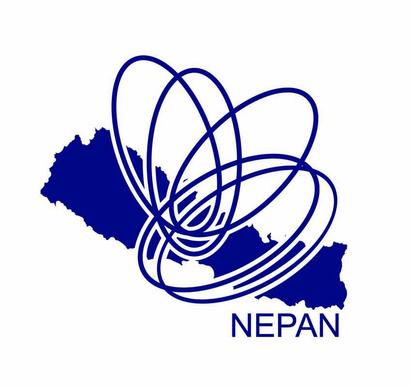The global alliance for the rights of older people (GAROP) Asia Pacific member’s regional workshop was held in Apollo Dimora Hotel, Trivandrum, Kerala, India from 13-14th November 2019. There were 36 participants from the region (India, Nepal, Bangladesh, Thailand, Qatar, Republic of Korea, and Republic of Kazakhstan) including organizer. Out of 36 there were 8 participants (NEPAN, Ageing Nepal, Senior Citizen’s Welfare Association Nepal, Women for Human Rights, Free forum for Rights, Alzheimer’s and Related Dementia Society Nepal and Console Mission) from Nepal.
Objectives of the workshop
- To strengthen our members’ understanding of human rights and the positive impact that a new UN convention would have on older people’s everyday lives.
- To equip our members with the knowledge and skills to successfully influence the OEWG process at the national (and international) level.
- To nurture stronger collaborative links between our members across the Asia Pacific region, with a focus on building national coalitions.
To meet above objectives discussions, group works and presentations were done on the following topics
13 November 2019 (First day)
Facilitator: Susan Somers, Secretary General from The International Network for the Prevention of Elder Abuse (INPEA)
- Why human rights: This session explored what human rights are and why are they important for older people in this region. It has considered ageism as a specific form of discrimination and examines how a human rights-based approach and a new convention can improve older people’s everyday lives.
- Understanding the UN process on older people’s rights: This session focused on the UN Open-ended Working Group on Ageing (OEWG), its mandate and history, the stages and progress of the process so far and its current status.
- GAROP and civil society coordination in the open ended working group (OEWG): This session has started with a brief review of GAROP’s mandate, vision, mission and history. Also covered structure including the Secretariat and Steering Group and membership with a breakdown by region. GAROP is the only global civil society platform dedicated solely to the human rights of older people and work towards a convention. Furthermore, the session looked at older people and civil society’s opportunities to engage in the OEWG including securing accreditation and the need to strengthen older people’s voices in the process and discussed important human rights processes at the UN level that are linked to the OEWG. Two short presentations were done by Ms Ishwari Swar, Senior Citizen’s Welfare Association Nepal – reflections on participation in the 10th OEWG session in New York in April 2019 and Mr Zazan Farah, Ehsan, Qatar – reflections on participation in the 41st session of the UN Human Rights Council in Geneva in July 2019
- Mapping government support for a UN convention in the region: This session explored which Member States have supported a convention in the UN OEWG so far by region and particularly look at Asia Pacific States participation in the OEWG session followed by a joint exercise, mapping States according to levels of influence and interest to inform advocacy planning.
- Building government support for a UN convention: This session covered the importance of year-round advocacy at the national level, good practice examples, and how we can build stronger political support from governments for a UN convention. Further presentation was done by Dr. Jacob Kattakayam, CGS from India on national advocacy and influencing in India
14th November, 2019 (Second day)
Facilitator: Prabhat Kiran Pradhan, Alzheimer’s and Related Dementia Society Nepal (ARDS)
- Working with National Human Rights Institutions (NHRIs): This session looked at the role of NHRIs, their participation in the OEWG process, and how NGOs can engage constructively with them in national advocacy around older people’s human rights. Followed the presentation which was done by Cho Hyunse, HelpAge Korea about the work of NHRIs and working with the National Human Rights Commission of Korea.
- Older people’s rights in the OEWG-content and substance: Presentation by: Ellen Graham, GAROP Secretariat: This session involved an introduction and update about the OEWG’s current working methodology, including the online consultations and subsequent working documents followed by the debates in New York. The session also covered terminology (‘substantive’ and ‘normative’) and the four OEWG focus areas for the 11th session.
- Parallel sessions on focus areas of older people’s rights
This session discussed about the substance of the focus areas for the UN consultation and the use of human rights-based language:
- Education,
training, lifelong learning, capacity building: discussion
of the paper produced by the GAROP Technical Group
- Social protection and social security (including social protection floors): discussion of the paper produced by the GAROP Technical Group
- Access to justice: discussion of UN Guiding Questions
- Right to work and access to the labour market: discussion of UN Guiding Questions
National advocacy planning: Presentation done by: Ferdoushi Begum, RIC on national coalition work in Bangladesh: This session talked about the case study about NGOs working together at national level in Bangladesh and enabled members to discuss and plan their national advocacy approaches up to April 2020 (and possibly beyond).
- Growing our movement and increasing our impact: Session led by Tanvi Patel, HelpAge International, this session considered how we can grow our movement and further resource our work and joint activities, including fundraising and in-kind support from members.
